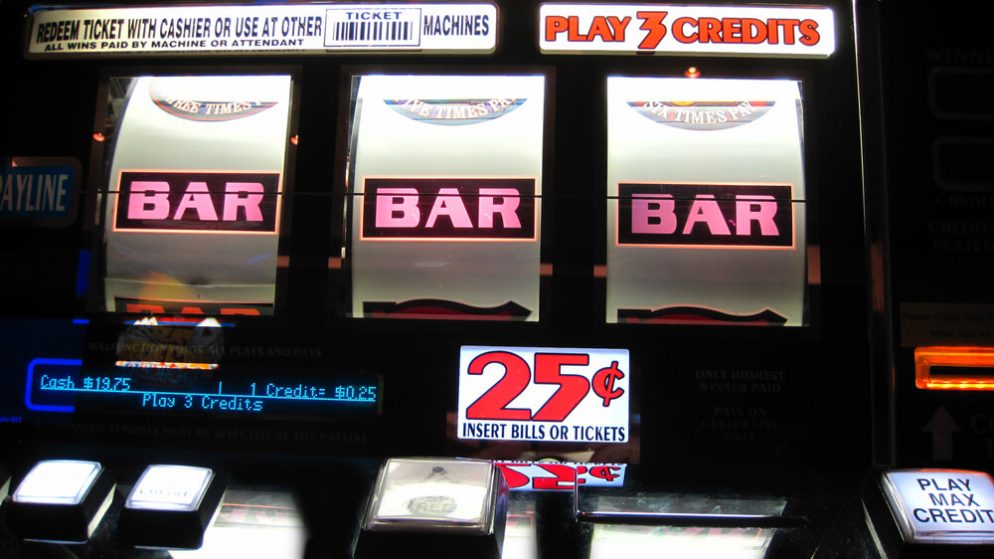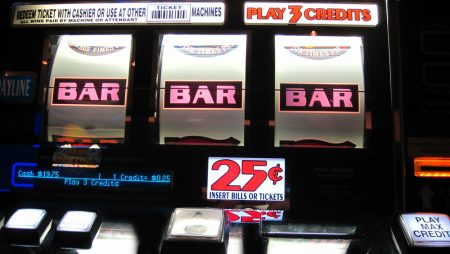

During the first week of March, Golden Entertainment, which owns PT’s Taverns Chain as well as the Strat, which has its headquarters in Las Vegas, announced that they were in the process of disposing off its distributed gaming business to J&J Ventures Gaming, a company based in Illinois. Some of the gaming options under the distributed gaming category comprise slot machine routes that involve employees installing, maintaining, and managing slot machines in convenience stores, taverns, grocery stores, bars, and restaurants.
According to the details of the sales contract, the company is expected to receive an estimated $322.5 million plus an additional $39 million as purchase money from J&J Ventures Gaming which is based in Effingham, Illinois in exchange for its Nevada and Montana slot routes. By the time the current year comes to a close, it is estimated that the agreement will have been concluded but only after regulatory validation has been granted.
The nature of the agreement calls for a financial obligation of $213.5 million and another $34 million to unlock the purchase of the Nevada route while $109 million and an estimated $5 million should be paid for to conclude the purchase of the Montana route. Purchased cash refers to the amount of money that is inside the gaming machines on the route.
Elaborating on the terms of the agreement, the Chairman and Chief Executive Officer of Golden Entertainment, Blake Sartini, revealed that it had taken the company two decades to establish the gaming model that now exists in Montana and Nevada. His management team is convinced that the new agreement that calls for sharing of technology and industry best practices is going to unlock even greater success for the brand.
This move is akin to handing over the management of gaming routes to the experts while the casino focuses on taverns and online casinos in IL that are fully owned by the company. In addition, Sartini spoke on the teams’ anticipation of the conduct of the Distributed Gaming team members. With new management handling their route partners, the organization is hopeful that they will run the business with the same level of dedication as they did. Handing over a service-based business entails a transfer of clients as well – a major KPI for this type of arrangement is customer satisfaction.
Sartini and his team are optimistic about the performance of J&J Gaming and that explains the new long-term agreement that now binds them together. J&J Gaming has committed to diligently service the wholly-owned tavern portfolio that Golden has placed in their hands. According to Golden, the sale transaction will accord them leeway to pay attention to other interests. The plan is to commit effort and capital to a portfolio of wholly owned taverns and casinos in Nevada in addition to creating additional value for shareholders.
Industry analysts have taken time to review the deal and most of them feel that the agreement will benefit the buyers greatly. The investors stand a high chance of reaping huge returns out of this deal because the gaming brands can each focus on businesses that they are experienced in. The purchase agreement between J&J and Golden is only part of what the two companies have in store as a strategy to grow their operations. It has also been reported that there will be a five-year agreement between them that will require JJ to boost the gaming businesses of Golden’s branded tavern situated in Nevada.
What we cover
Boosting profits
On top of this sale, Golden has in the recent past reported that it was going to liquidate its Maryland based Rocky Gap Casino. The sale of slot routes together with the liquidation of Rocky Gap casino is expected to significantly improve profit margins. Speaking to the company’s investors on the same note, Omer Sander of J.P. Morgan said that the sale is going to make the business scene for golden to be rather simple. His recommendation is for the removal of a drag on GDEN (Golden) estimates as investors have largely endorsed a mid-single-digit multiple to the distributed gaming business.
Commenting on the proposed sale, John DeCree of CBRE Equity Research, weighed in on the matter with a note from the investors. In their remarks, it is clear that they foresee a future where Golden will continue to profit from its tavern business. Part of the sale agreement specifies that the duration of the contract would be 5 years and would involve J&J and GDEN.
Over the 60 months period, the wholly-owned tavern locations in Nevada would be serviced under similar economic terms as per current conditions. This arrangement places the tavern portfolio in a situation where the cash flow generated would reflect the performance of 2022 with the potential to grow depending on the unit expansion plan drawn on February income call last for recent weeks.
J&J Ventures Inc. is an old company that began route operations in 1929, growing its reach over time due to a positive reputation. In the present day, the company’s Gaming wing’s influence is even greater and ranks among the biggest terminal operators in Pennsylvania and Illinois. The company’s operations are divided into Gaming and Amusements.
The Amusement operation is a flagship project that deals in non-gaming devices such as jukeboxes, ATMs, pool tables, and dart machines. Golden Entertainment is a flagship organization that has dealings in casinos, slot routes, and taverns. The brand was established and officially began operations in 2015.
Conclusion
Golden Entertainment has made a decision concerning the direction that they want the company to take for future growth. This is mostly done in cases where a business analyses their losses and takes the best action to safeguard its trade interests. For now, slot routes have to go to give an opportunity to the other segments of the casino to thrive. This way, unnecessary expenses are cut off and the brand promotes only what they believe to be strong in.

